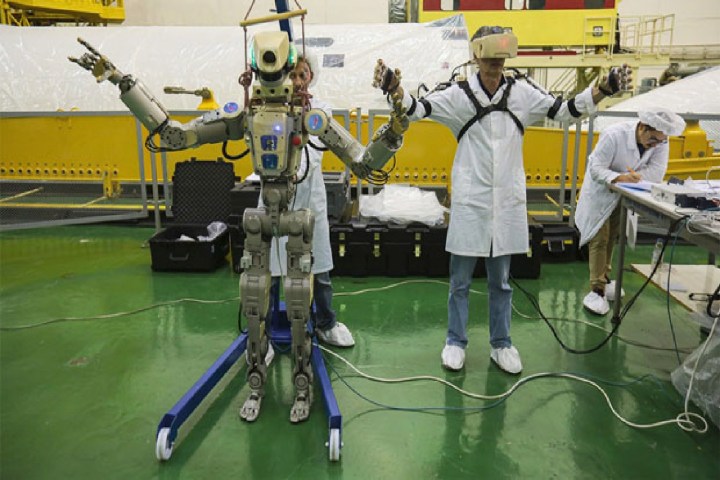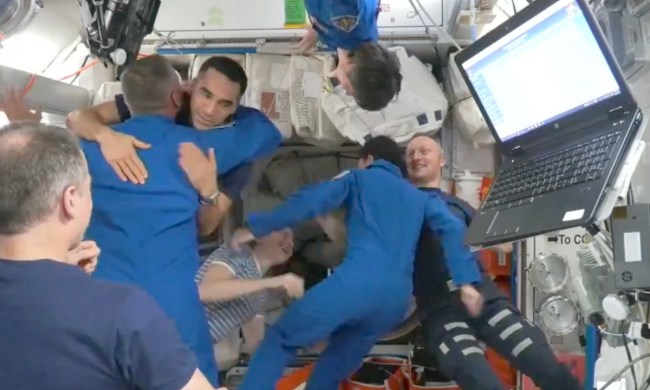
The International Space Station is about to get its latest guest — and it’s not human. On Thursday, a Russian humanoid robot will fly to the ISS aboard the Soyuz MS-14 rocket. Originally known as “Fedor,” the robot, which was showcased firing handguns in front of the Russian military, has been renamed Skybot F-850 for its trip into space.
During its weeklong stay on the ISS, Skybot F-850 will be used to “perform several tasks under the control of astronaut Alexander Skvortsov.” According to the Russian space agency Roscosmos, it will also be able to “communicate with the crew” on a wide variety of subjects.
“Skybot F-850 can communicate on any topic,” Alexander Bloshenko, science adviser at Roscosmos, recently told IEEE Spectrum in a short, translated interview. “Before launching the Soyuz, the robot will describe prelaunch preparations, and during the launch and flight he will report the flight parameters and observed events. As the spacecraft enters orbit, the robot will determine the onset of zero gravity. Like a person, Skybot F-850 is [also] very sociable and has a sense of humor. … He can support any topic of conversation, answer a variety of questions — from making introductions, to talking about its creators, and ending with the philosophy of space.”
Посвящается нашему Фёдору @FEDOR37516789 и его предстоящему полёту@roscosmos @tvroscosmos @fpi_russia @glavkosmosJSC pic.twitter.com/N4T8cz73co
— ROGOZIN (@Rogozin) August 12, 2019
When he’s not conversing about the “philosophy of space” (which, to my mind, totally makes him sound like the robot version of Marie Kondo), it’s unclear as to exactly which tasks Skybot F-850 will be carrying out on the International Space Station. The most detailed information released notes that it will conduct “tests prepared by Russian engineers to assist astronauts inside the ISS.”
While this could just be a publicity stunt, there are plenty of ways an autonomous robot could be useful on a facility like the ISS. In the North Sea, four-legged robot ANYmal has been tested out for a job inspecting oil rigs. It can travel around autonomously and take measurements and readings. Something similar could conceivably be carried out by a robot like Skybot F-850 in space. Of course, a lot of that depends on how well its upcoming working vacation goes.


